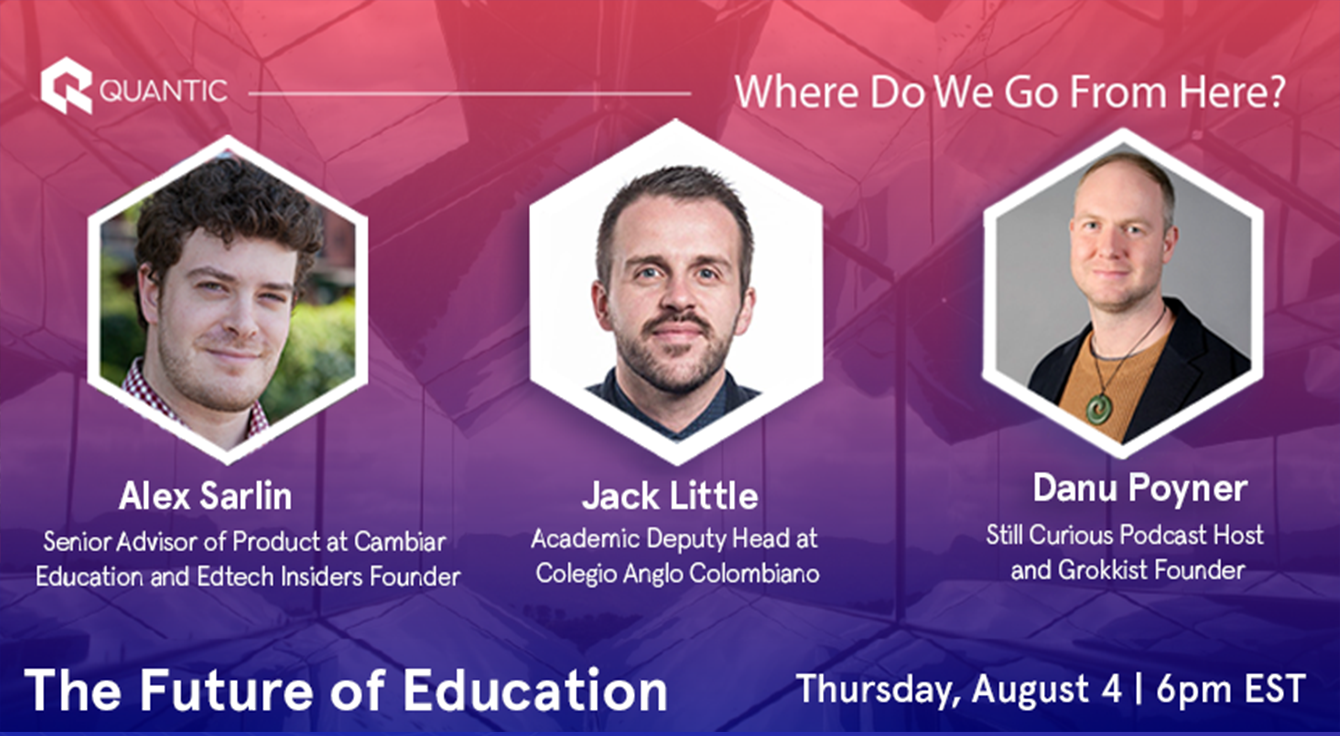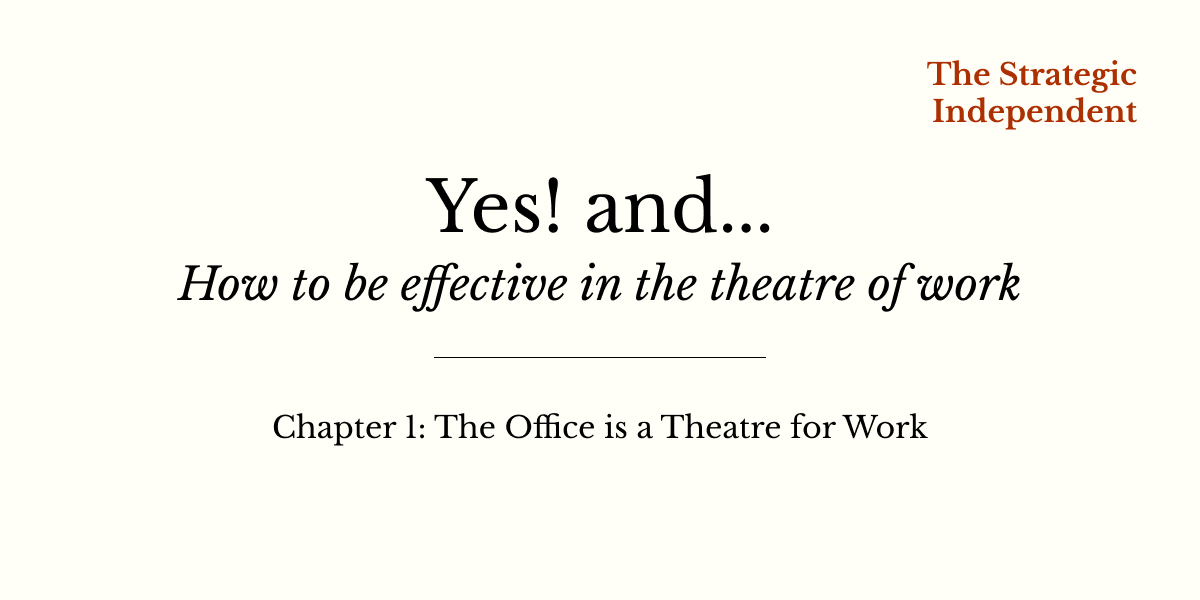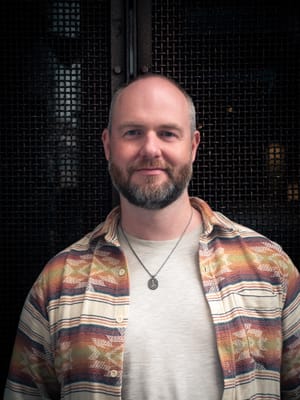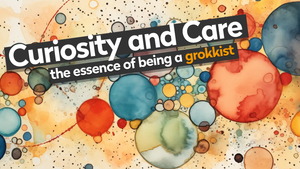✍🏼 What is a grokkist?
Since quite a few new folks have signed on recently, I figured it would be a good time to revisit introductions - what is this site about and what actually is a grokkist?
A grokkist owns their education and is led through life by learning – someone who groks as a way of being. They value breadth and depth of knowledge and fill their cup by drinking deeply from the well of understanding.
Grokkists tend to have oodles of interests and hobbies – too many, some might say – and they resist specialising too far in any of them lest they miss out for too long on the others.
Put another way, a grokkist specialises in being interested.
No matter what age they are, grokkists still have their curiosity intact and they have not yet forgotten how to play. They are grown-ups who are still deciding what to be when they grow up.
Traditional school-based learning is usually boring, stifling or irrelevant for grokkists, overly preoccupied as it is about grades and with moulding people into a commodity fit for market, rather than an inquisitive and well-rounded human being.
Grokkists often figure things out faster than others and rejoice in bringing what they’ve learned to those around them. They burn with a quiet conviction that knowledge can make a difference.
Because they tend to assume that others value knowledge in the same way, they struggle when their insights are ignored, or worse, unwanted.
It is a hard lesson for grokkists to learn that many people simply aren’t as interested as they are. And because they may have taken a casual approach to specialising, sticking around or getting credentials, they may not have built up the institutional authority or social capital to make real change where they are.
Grokkists often feel stuck, frustrated, isolated and restless. Some find ways to do well in the system, some find a niche on the edges that suits them, some keep changing things up to survive, and some crash out altogether.
They wonder what’s wrong with them, even while their lived experience confirms to them time and again that such success as they have enjoyed usually comes from understanding things that others don’t see.
Grokkists pursue new information on a hunch that in might turn out to be useful later, because in their experience it usually is. They’ve tried a bunch of seemingly random things and abandoned plenty more, but their learning is never wasted.
They are rapid learners and creative problem solvers whose best insights emerge from the intersections of different areas of expertise. They understand situations and problems in multiple dimensions, and because they can understand how the details and the big picture fit together, they can usually see what’s missing and step in to synthesise a way forward.
Grokkists are usually well-liked and often admired, but rarely understood. They bring incredible value to anything they are a part of, but systems of education and work were not designed by them, or for them.
There wasn’t a place or even a name for them. Until now.
Grokkists need a space to connect with people and ideas that melt away our isolation, get us unstuck and keep us energised. A community where we can share and draw on each others’ knowledge, experiences and enthusiasms. A place we know we can return to anytime to find clarity and convert it into transformative action.
We are creating that community. Together.
If you’ve discovered you’re a grokkist, we invite you to move past the sense that you never fit the mould, and to begin to see yourself in a new light. Through understanding and cultivating your unique strengths with care and attention, you can develop the self-assurance to forget the mould altogether.
Together, we can unlock the grok.

🔗 https://www.videoask.com/fjdeicqzm
🪧 Community Notices
Events, announcements and guest contributions
🗣 Future of Education discussion panel
I'm part of a discussion panel later this week about challenges, opportunities and trends in education. The event is hosted on LinkedIn by Quantic, the disruptive mobile-first business school where I enjoyed completing my Executive MBA (read my thoughts on that learning experience here). It is the kickoff event for their 'Where To From Here?' series.
🗓 Thu 4 Aug | 6pm EST (that's Fri 5 Aug | 10am NZST | 8am AEST)
[Side note: the graphic certainly highlights to me that there is room for more diversity in this line-up. Nevertheless, I'm honoured to be invited to present a grokkist's perspective on education.]

🍾 Old School School Symposium Wrap-Up
Recently I co-hosted the Old School Symposium with Nathanology – a group hang-out on the topic of collaboratively reimagining the concept of school, from the ground up.
Nathan and I were humbled and energised by the response to the Symposium – it went better than we expected and it had taken on a life of its own by the end!
There was a good crowd, the drinks and discussion were flowing, Nathan did some freestyle rap and around 20 people stayed on to vibe with us for another HOUR AND A HALF after the main event, continuing an amazing and eye-opening conversation.
This comment from Merri really summed up the event for me:
"I've had a lot of thoughts on the subject and nowhere to share them"
We're thinking hard about next steps, and how best to honour and nurture the community that clearly wants to grow around this conversation.
🎙Still Curious Podcast
Featured Episode
👋 Still Curious is currently on mid-season break, returning later this month. Meanwhile please enjoy this classic episode from the back catalogue...

For some, 'following your curiosity' has connotations of self-indulgence and privilege – it evokes images of long brunches and journaling one's thoughts in a leafy glade, free to float above the grind and economic insecurity that is a daily lived reality for many people.
I wanted to get a perspective on curiosity from someone who deeply understands chronic disadvantage, both from direct experience and through the lens of scholarship, research and practice.
As a youth work practitioner, Kat was curious why none of the research on best practice for working with young people with drug issues seemed to be applicable to the young people she was working with, and this curiosity led her into a research career.
Looking back, this remains one of my best episodes, and it contains a particularly fine example of one of the show's signature questions, where Kat explains chronic disadvantage to a 10-year-old (listen below or from 6:12).
Kat Daley explains chronic disadvantage to a 10-year-old.
In this episode
- Deep dive into the realities of chronic disadvantage, inherited poverty and life on the margins.
- Making choices in tragic circumstances.
- What's involved in running the largest youth work degree program in Australia.
- Bringing lived experience to tackling systemic injustice.
- Curiosity, security and social class.
🍬 Snackables
Assorted awesome links
Omzoc makes soothing stop-motion videos of beautiful hand-crafted creations. This 72-second woodworking video uses 791 undoctored photos stitched together.
If you enjoy short, well-researched and sometimes witty explanations of obscure facts and trivia, Half As Interesting is a YouTube channel worth adding into your rotation. This one happens to be on something I lived through – it was exactly as crazy as it sounds.

Tom Critchlow's top-notch five-part blog series on the theatre of office work and what improv acting can teach us about 'performing' modern knowledge work. An absolute must-read for indie consultants in particular.

SkillMapper is a promising aggregator platform for finding and comparing the growing proliferation of online courses. It lets you quickly scan price, length, enrolments and reviews across multiple platforms, and has a handy Chrome extension that finds alternatives when you're browsing around.

An entertaining assortment of architectural malice and pettiness.











Member discussion